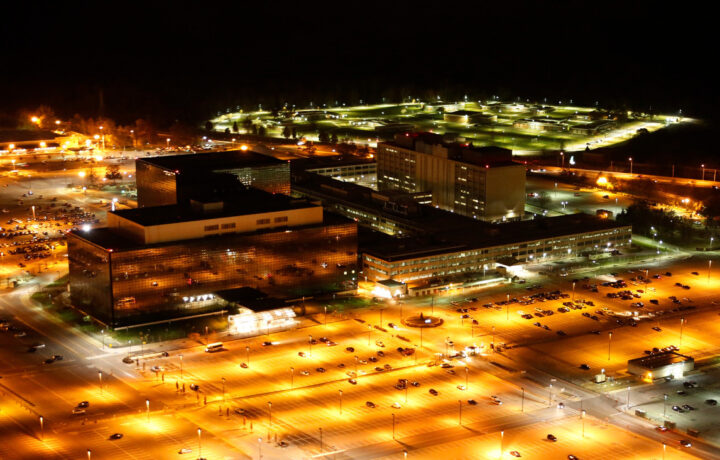This is increasingly becoming the “year of artificial intelligence” (AI) as it is being seen employed in new consumer-facing products including tools that can create “original” forms of media content from written articles to paintings, while AI is being used in advanced autonomous vehicles. In the government sector, AI is already being employed in military platforms.
It could soon be used to aid in securing the country’s security infrastructure.
Recently, the United States Department of Defense (DoD) announced that a new AI security center at the National Security Agency (NSA) will oversee the technology, and how it can protect U.S. AI systems and defend against external threats.
AI and the NSA
The AI Security Center will become the focal point for developing best practices, evaluation methodology, and risk frameworks with the aim of promoting the secure adoption of new AI capabilities across the national security enterprise and the defense industrial base, the Pentagon explained. This new entity will consolidate the NSA’s various artificial intelligence and security-related activities.
“The AI Security Center will work closely with U.S. Industry, national labs, academia across the [intelligence community] and Department of Defense and select foreign partners,” National Security Agency Director Army Gen. Paul M. Nakasone said during a recent discussion hosted by the National Press Club in Washington.
Nakasone noted the most recent strategies guiding U.S. national security, defense, and intelligence emphasize the increasingly consequential role of AI. He further added that the unique talent and expertise at the NSA should make the agency well suited to support the government’s effort to ensure the U.S. maintains its competitive edge in AI, which has been seen as a potential game-changer for intelligence gathering. U.S. officials have long emphasized the increasing role AI is having in shaping the national security landscape and have taken steps to shape the future of the emerging technology.
Machine learning and other algorithms have been touted for years for the ability to revolutionize signals intelligence (SIGINT). It could sift through raw signals, and throw out irrelevant data.
The new center could be incorporated into the NSA’s existing Cybersecurity Collaboration Center, which already works with the private sector and internal partners to strengthen U.S. defenses from near-peer rivals such as China and Russia.
A Decade-Long Process
The move towards a dedicated AI Security Center actually began more than a decade ago, in 2012 when the Pentagon updated its 2012 directive that governs the responsible development of autonomous weapon systems to the standards aligned with the advances in artificial intelligence.
The next major leap came in 2020, when the DoD then published its Responsible AI Strategy and Implementation Pathway (RASIP), which still serves as a key example of U.S. leadership in promoting responsible stewardship of the rapidly emerging technology.
In 2021, the NSA had predicted that AI and machine learning will play a role in protecting the U.S. from malicious cyber actions, and Jason Wang, technical director for the NSA’s Computer and Analytic Sciences Research Group, forecasted a future in which AI will support the Intelligence Community’s (IC) efforts to secure and defend the country’s networks.
The U.S. has also introduced a political declaration on the responsible military use of artificial intelligence, which further seeks to codify norms for the responsible use of the technology.
A Cyber Cold War
Nakasone, who also heads up the U.S. Cyber Command and serves as the chief of the Central Security Service, further warned that it is critical the U.S. maintain its leadership in AI as the technology matures. Both Beijing and Moscow have also been focused on the role of AI in intelligence gathering, as well as how it can be employed in cyberattacks.
In July, FBI Director Christopher Wray warned that “AI will enable threat actors to develop increasingly powerful, sophisticated, customizable, and scalable capabilities.”
AI will thus be increasingly consequential for national security in diplomatic, technological, and economic matters for our country and our allies and partners Nakasone suggested.
“Today, the U.S. leads in this critical area, but this lead should not be taken for granted,” he added. “Our adversaries, who have for decades used theft and exploitation of our intellectual property to advance their interests will seek to co-opt our advances in AI and corrupt our application of it.
The Cyber Command chief further acknowledged that it is imperative that the NSA sets a clear path forward to address “both the opportunities and challenges of AI as industry rockets forward with innovation.”
AI to AI
Finally, it is also important to note that AI security is about protecting AI systems, and that includes keeping it from learning, doing, and revealing the wrong thing.
“We must build a robust understanding of AI vulnerabilities foreign intelligence threats to these AI systems and ways to encounter the threat in order to have AI security,” Nakasone said. “We must also ensure that malicious foreign actors can’t steal America’s innovative AI capabilities to do so.”



